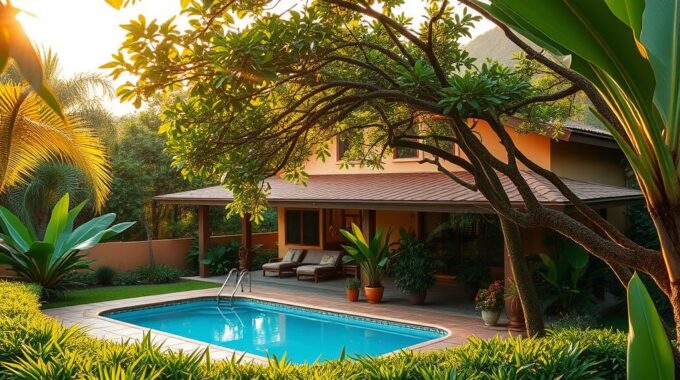As a hub for international workers and service providers, Costa Rica has introduced Law No…
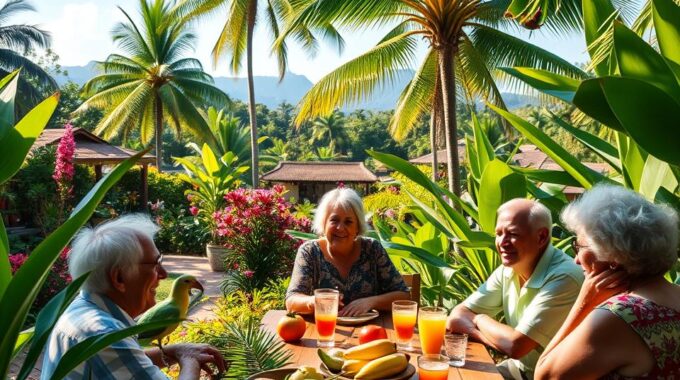
Costa Rica Residency: Pension & Disability Options With CRIE
Have you ever thought about why Costa Rica is a top pick for retirees? It’s not just the beautiful landscapes and lively culture. Costa Rica also has great pension & disability pension options that could make your dream of living here come true. This article will explore the different residency options, focusing on the benefits of Costa Rica Immigration Experts (CRIE).
With over 20 years of experience in immigration and residency services, CRIE is here to help. They know all about making the process of getting residency in this tropical paradise smooth.
Key Takeaways
- The Pensionado Program requires a minimum monthly income of $1,000 from a pension or retirement fund.
- Understanding the nuances of Costa Rica’s Residency Pension and Disability options is crucial for retirees.
- CRIE provides invaluable assistance for a smooth residency application process.
- Exploring income requirements is essential for applicants seeking residency in Costa Rica.
- The duration and intricacies of the citizenship process can significantly impact applicants.
- The Investor Program necessitates a substantial investment of $200,000 in Costa Rica.
- Understanding visa overstays can help avoid legal complications within the country.
Introduction to Costa Rica Residency Options
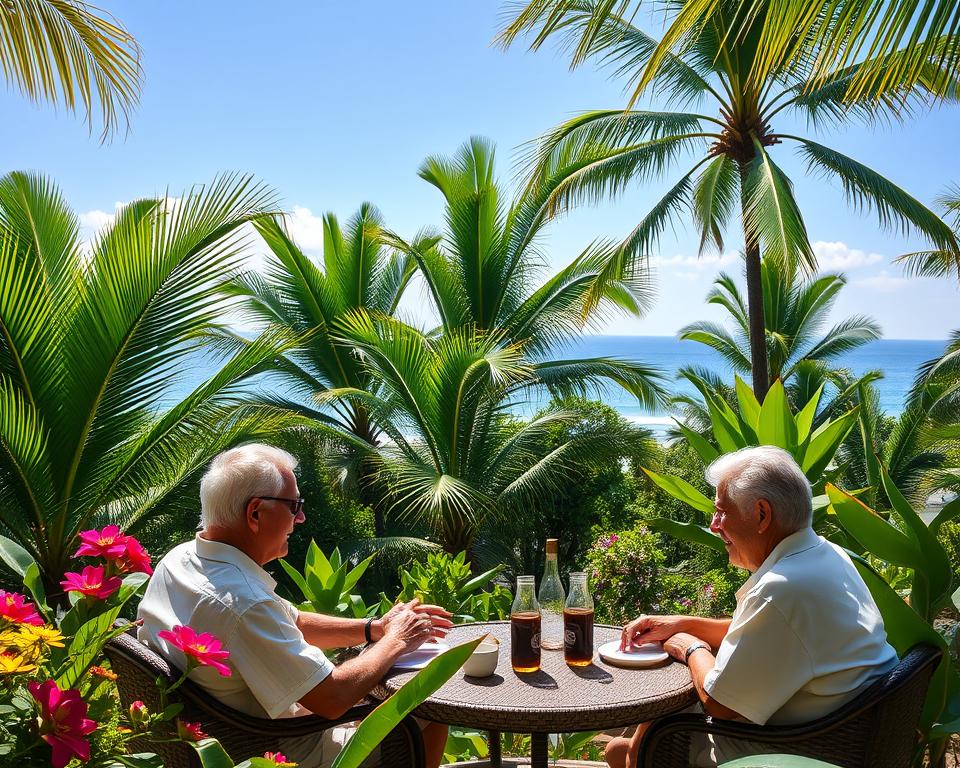
Costa Rica has many residency options for expats, retirees, and investors. These options are designed to fit different needs. You can choose from the Pensionado, Rentista, and Investor visas, each suited for a specific group.
Retirees need a pension of at least $1,000 a month for the Pensionado Visa. Without a pension, the Rentista Visa requires $2,500 monthly for two years or a $60,000 deposit in Costa Rica. Investors can apply with a $150,000 investment in property or business.
Knowing the Costa Rica immigration process is key for a smooth move. Temporary residence takes 10 to 14 months, with initial fees around $251. Additional fees are about $433. Monthly living costs range from $1,600 to $2,500, offering a good quality of life.
It’s crucial to understand the Costa Rica visa requirements for residency. Prospective residents should research well to ensure they qualify. CRIE, with over 20 years of experience, helps make the application process easier.
Understanding the Pensionado Residency Program
The Pensionado residency program is a great choice for retirees wanting to move to Costa Rica. It’s designed for those with a steady pension income. It’s key to know the rules and perks of this residency path.
Eligibility Requirements for Pensionado Residency
To get Pensionado residency, you must meet certain income rules. You need to show you have at least $1,000 USD in monthly pension income. This income can come from government pensions or private plans.
You also need to provide valid pension documents and a criminal background check. Plus, you must spend at least one day in Costa Rica each year. Your spouse and kids under 24 can also apply.
Benefits of the Pensionado Residency
Getting Pensionado residency in Costa Rica comes with many benefits. You get tax breaks on foreign income, making retirement better. You also get to use Costa Rica’s public healthcare system, focusing on your health.
After three years of temporary residency, you can get permanent residency. This gives you more rights and benefits. Costa Rica’s climate, culture, and friendly expat communities make it a great place to retire.
Residency Pension & Disability Pension Options in Costa Rica
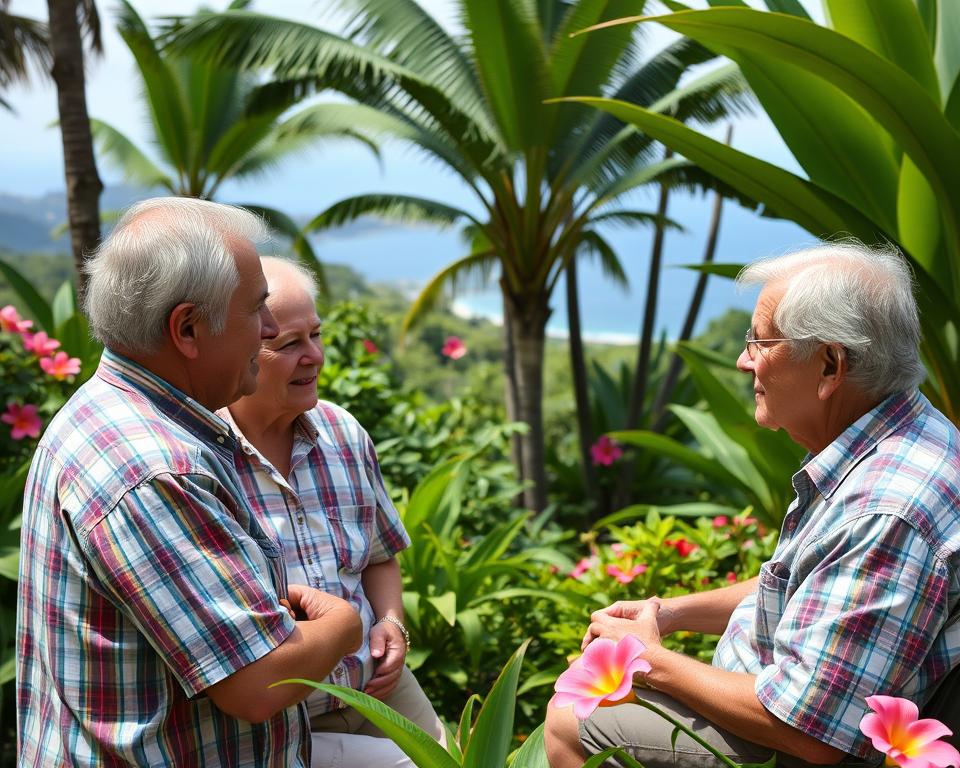
Costa Rica offers different paths for residency, including the pension and disability pensions. It’s a place where money and happiness matter a lot. Knowing the differences helps people choose the right option for them.
Overview of Disability Residency Options
The disability residency option is for people with disabilities in Costa Rica. It lets them live there and get the help they need. To apply, you must show your disability with medical papers and meet the visa rules. This helps people with disabilities live better and get the help they need.
Differences Between Pensionado and Disability Residency
The pensionado program is for retirees with a steady income of at least $1,000. The disability residency is for those with disabilities. Key differences include:
- Eligibility criteria: Pensionado needs a steady income, while disability residency requires proof of a disability.
- Financial stability: Both ensure financial security, but in different ways. Pensionados use retirement money, while disabled residents might get support from various sources.
- Access to systems: Disabled residents get special help in Costa Rica. This makes life better and easier for them.
Choosing between these options greatly affects your life in Costa Rica. It opens doors to enjoying the country’s culture and beautiful places.
Requirements for Applying for Residency
Applying for residency in Costa Rica means you need to know the Costa Rica residency requirements. You must gather the right documents for a successful application. The documents needed change based on the type of residency, like for retirees, investors, or students.
Gathering Necessary Documentation
Important documents for residency applications include:
- Valid passport
- Birth certificate
- Police clearance certificate
- Medical examination reports
- Proof of income or investment
To meet Costa Rica residency requirements, these documents must be apostilled or authenticated. If you’re applying for a pension, you’ll need to show a steady income, like $1,000 monthly for retirees.
Understanding the Application Process
The Costa Rica immigration process is detailed. It can take up to a year, depending on the number of applications and the type of residency. You might need to go through interviews and provide more documents if asked.
Working with experts can make things faster. They help make sure all paperwork is correct and on time.
Benefits of Choosing Costa Rica for Retirement
Costa Rica is becoming a top choice for retirees. It offers many benefits for a happy and comfortable life. Two main reasons people love it are the quality healthcare and the low cost of living.
Access to High-Quality Healthcare
The healthcare in Costa Rica is top-notch and affordable. Public healthcare is very cheap, making it easy for retirees to get the care they need. They pay only 7% to 11% of their income for it.
Many also choose private insurance, which costs between $60 and $250 a month. This gives them more coverage. A doctor’s visit is under $100, so retirees can focus on their health without worrying about money. For more on residency, see the permanent residency guide.
Cost of Living and Quality of Life for Expats
Living in Costa Rica is much cheaper than in many Western countries. Retirees can live well on $1,000 to $1,500 a month. This covers housing, healthcare, and food.
Homes near the beach start at $159,000, and monthly living costs are about $2,025. Housing prices vary based on location and what it offers. Fresh food costs $40 to $50 a week, and utilities for two people are around $150 a month.
Steps to Apply for Residency in Costa Rica
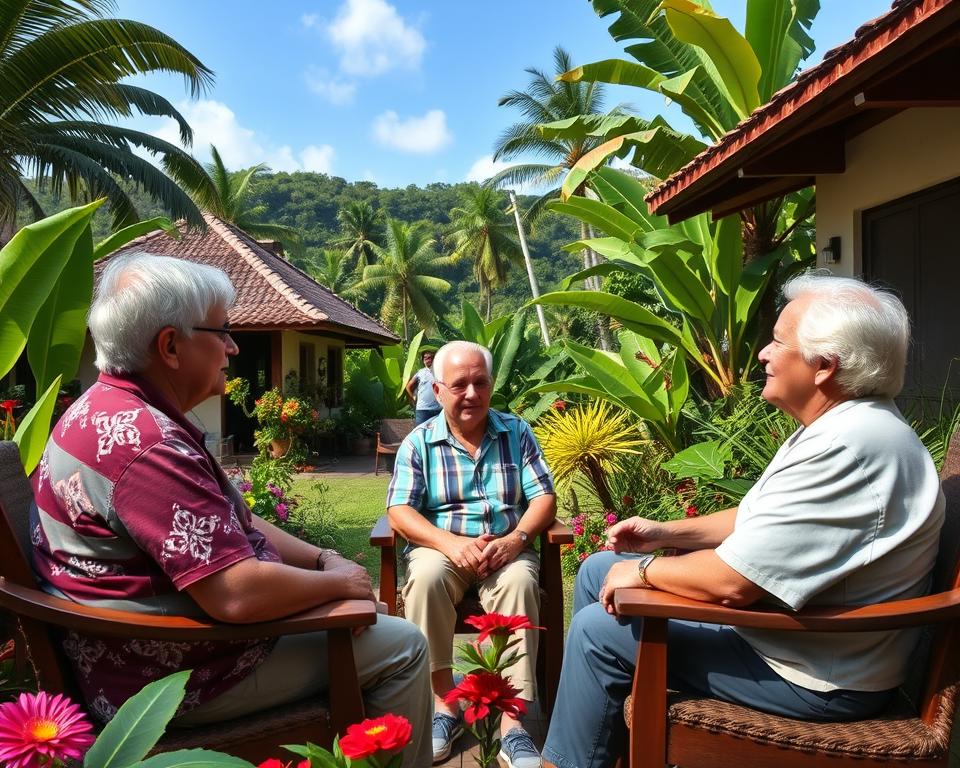
Getting residency in Costa Rica has clear steps to help you. First, pick the right residency type for you. Then, collect all needed documents. Costa Rica offers different types, like for retirees, investors, and workers.
Initial Application Procedures
When starting, you must gather certain documents based on your residency type. For instance:
- Retirees applying for Pensionado residency must show proof of at least $1,000 monthly from a lifetime pension or retirement fund.
- Rentistas need to prove a monthly income of $2,500 or make a $60,000 deposit in a Costa Rican bank.
- Also, a notarized and authenticated birth or marriage certificate and a police record issued within three months of the application are typically required.
After gathering these documents, submit them to the right Costa Rican Consulate or immigration authorities in your current location.
Understanding Temporary vs Permanent Residency
It’s important to know the difference between temporary and permanent residency in Costa Rica. Temporary residency, like Pensionado and Rentista, has benefits that can lead to permanent residency after a certain time. For example, living as a Pensionado or Rentista can make it easier to get permanent residency after three years.
Permanent residency, on the other hand, offers more stability and benefits. It includes an easier path to citizenship after ten years of residency in Costa Rica. Getting these residency statuses can be easier with the help of experts, like those from Costa Rica Immigration Experts (CRIE). They can help you through the complex application process.
Working with Costa Rica Immigration Experts (CRIE)
Thinking about moving to Costa Rica? Working with Costa Rica immigration experts can make it easier. Costa Rica Immigration Experts (CRIE) is a trusted name for those dealing with residency applications. They help with checking if you qualify, give legal advice, and prepare documents.
The Role of CRIE in the Immigration Process
CRIE has helped thousands of people with their immigration needs. They have over 20 years of experience and focus on getting applications approved fast. They make sure all documents are correct and follow Costa Rican laws. For more on what CRIE offers, visit their about page.
Success Stories and Testimonials
CRIE’s success stories show their commitment to making clients happy. Many people say CRIE made getting residency easier. This proves why it’s smart to use experts for immigration needs. For more info on work permits and residency, check their work permit page and FAQ page.
Conclusion
Costa Rica is a great place for retirees, thanks to its Pensionado program and support for people with disabilities. You only need $1,000 USD a month to live comfortably. You’ll get good healthcare and affordable places to rent.
The country’s natural beauty and friendly communities make it a top choice. It’s a perfect place to call home.
Thinking about moving to Costa Rica? Working with CRIE can make it easier. They help with all the paperwork and answer your questions. You can even get permanent residency or citizenship.
Contact CRIE To Begin Your Residency Process Today
Ready to retire in Costa Rica? Contact CRIE for help. They have a detailed guide and support for new residents. Start your adventure today and see what Costa Rica has to offer.
Source Links
- https://crie.cr/costa-rica-residency/
- https://gap.cr/topics-of-interest/
- https://gap.cr/costa-rica-immigration-residency-categories-with-crie/
- https://www.nikorilifestyles.com/blog/costa-rica-immigration-and-residency-overview
- https://crie.cr/apply-for-residency-with-a-pension-of-1000-or-more/
- https://internationalliving.com/countries/costa-rica/visa/
- https://lawyersofcostarica.com/costa-rica-residency/
- https://brighttax.com/blog/retire-in-costa-rica/
- https://startabroad.com/locations/costa-rica-country-guide/costa-rica-visa-options/
- https://www.simple-legal.consulting/residencies-type-in-costa-rica
- https://crie.cr/costa-rica-residency-requirements-3/
- https://crie.cr/costa-rica-retirement-visa-benefits/
- https://crie.cr/retire-in-costa-rica-your-golden-years-paradise/
- https://flamingobeachrealty.com/what-makes-costa-rica-a-great-place-to-retire/
- https://crie.cr/costa-rica-residency-your-step-by-step-guide/
- https://www.costaricadiscovered.com/costa-rica-residency-immigration
- https://crie.cr/costa-ricas-fixed-income-residency-program-with-crie/
- https://gap.cr/costa-rica-residency-renewal-crie-requirements/
- https://www.gaprealestate.com/how-many-americans-and-canadians-live-in-costa-rica/
- https://crie.cr/costa-rica-residency-for-retirees/
- https://gap.cr/how-to-get-citizenship-in-costa-rica-3/


